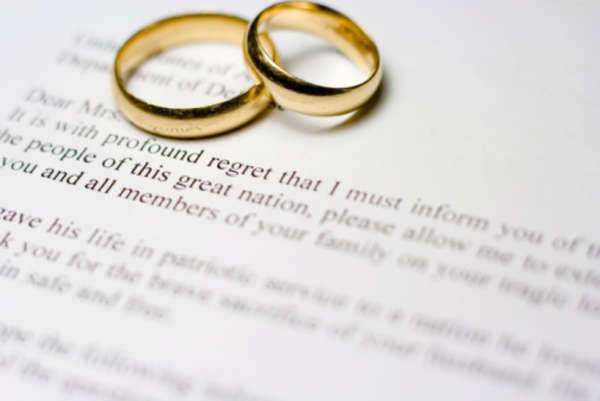
Marriage is one of the most important and life-altering decisions that an individual makes in his or her life. Marriage is a social institution where two individuals decide to join together in a lifelong commitment. It is a union of two people who promise to love and support each other through thick and thin, regardless of the ups and downs of life.
In this article, we will discuss all that you need to know about marriage in detail so that you can make an informed decision when it comes to tying the knot.
The History of Marriage
Marriage is not a new concept. It has been around for centuries. However, the concept of marriage has evolved over time. Initially, marriage was recognized as an institution that primarily served the purpose of procreation and continuation of the human race. It was also a way to create alliances between tribes, clans, and families.
In the Middle Ages, marriage became more of a personal affair and started to involve romantic love. This was a time when arranged marriages were quite common, and most people married within their social class or status. The Industrial Revolution in the 18th century brought about significant changes in society. More and more people started moving to urban areas, and with it came economic and social changes. Marriage became more of a sentimental institution that focused on love, companionship, and emotional support.
In the 20th century, there was a significant shift in the institution of marriage. Marriage equality, which is the right to marry regardless of sexual orientation, became a topic of discussion and debate. In 2015, the United States Supreme Court ruled in favor of marriage equality, enabling same-sex couples to marry.
Types of Marriage
Marriage comes in different forms around the world. The most common form is monogamy, where an individual is married to only one person at a time. However, there are other forms of marriage that exist, such as:
Polygamous Marriage: In polygamous marriages, one person is married to more than one spouse at the same time. Polygamy is illegal in most countries, including the United States.
Polyandrous Marriage: Polyandry is a form of marriage where one woman marries multiple men. This form of marriage is rare and occurs primarily in some cultures of the Himalayas.
Group Marriage: In group marriage, multiple individuals of any gender are married to each other. This type of marriage is not recognized, and it is illegal in most countries.
Arranged Marriage: Arranged marriages are common in some cultures, where marriages are arranged by parents or family members rather than by personal choice.
Marriage Rules and Laws
The rules and laws regarding marriage vary from country to country. In the US, marriage laws are determined by the states, and each state has its own set of rules and laws. In general, there are a few basic rules that apply to all marriages:
Both parties must be of legal age to marry, which usually ranges from 18-21 years old.
Both parties must be consenting adults who are entering the marriage voluntarily.
Neither party can be already married at the time of marriage.
Marriage of close family members, such as siblings, is illegal.
The Marriage License
Before getting married, couples must obtain a legal marriage license. A marriage license is a document that proves that a couple is legally allowed to marry. The requirements for obtaining a marriage license vary from state to state, but in general, both parties must provide identification and proof of age.
Marriage Ceremonies and Traditions
Marriage ceremonies and traditions vary from culture to culture. Generally, a marriage ceremony involves a public declaration of the couple’s intentions to marry, followed by the exchange of wedding vows. The wedding may include a religious or a civil ceremony, depending on the couple’s preferences. In the US, most marriages are conducted in a religious setting such as a church, but some couples choose to have a civil ceremony at a courthouse or other legal location.
Wedding traditions also vary from culture to culture. Some common wedding traditions include the lighting of a candle or unity candle, the throwing of rice or flower petals, the exchange of wedding rings, and the cutting of the cake. There are also many different cultural traditions that may be incorporated into a wedding, such as wearing traditional clothing, performing traditional dances, or serving traditional foods.
Divorce
Divorce is the legal dissolution of a marriage by a court or another competent body. Divorce rates have been steadily increasing over the years, with the divorce rate in the US being around 39% of marriages as of 2020.
Divorce can be a complex process, especially when it involves contested issues such as child custody, division of assets, and spousal support. In some cases, couples may choose to seek mediation or counseling to help resolve these issues.
In the US, each state has its own divorce laws, and the grounds for divorce may vary. However, in general, there are several grounds for divorce, including:
Adultery
Abandonment
Cruelty
Irreconcilable differences
In most states, a couple must live separately for a specified length of time before filing for divorce.
Marriage and the Law
Marriage has significant legal implications, especially concerning property rights and inheritance. When a couple gets married, they become a legal unit in the eyes of the law. This means that they are both responsible for any debts incurred during the marriage and have a right to property acquired during the marriage, regardless of whose name is on the title.
Married couples also have specific tax benefits that are not available to unmarried individuals. For example, married couples can file a joint tax return, which often results in a lower tax bill.
The institution of marriage has also undergone significant changes in regards to same-sex marriage. In 2015, the US Supreme Court ruled in favor of marriage equality, which allows same-sex couples to marry and enjoy the same legal benefits as opposite-sex couples.
Benefits of Marriage
There are many benefits to getting married. Some of the most common benefits of marriage include:
Emotional Support: Marriage provides a sense of emotional security and support, which can be invaluable during difficult times.
Financial Benefits: Married couples often enjoy certain financial benefits, such as lower taxes, shared expenses, and the ability to purchase property jointly.
Children: Marriage is often associated with starting a family, and having children can be a fulfilling and rewarding experience.
Longevity: Studies have shown that married individuals tend to live longer than unmarried individuals.
Health Benefits: Married individuals are often healthier than unmarried individuals, especially when it comes to mental health.
Conclusion
Marriage is a complex and multifaceted institution that has undergone significant changes over time. Today, marriage is primarily seen as a personal choice and a means of finding emotional support, financial security, and companionship. The institution of marriage is enshrined in the law, and it has significant implications when it comes to property rights, taxes, and inheritance.
While marriage may not be for everyone, there are many benefits to getting married that should be carefully considered before making a decision. Ultimately, the decision to get married should be based on personal preferences, values, and beliefs, and should be entered into with careful consideration and thoughtful planning.
Marriage is actually an important type of proceeding for family law, as a court’s approval is necessary for marriage to have legal force. Family law marriage, meaning marriage from the perspective of family law, can actually be understood as a contract between two parties who agree to assume the rights and responsibilities of being husband and wife with regard to one another.
Understanding marriage from this perspective ensures that those seeking family law help in getting married will not have to go to a religious source to obtain married status. Instead, parties looking for family law help in getting married can go to a legal official who can marry them. Legal officials capable of performing a marriage include religious clergymen, but also include judges, magistrates, justices of the peace, county clerks, and mayors. All of these parties could, in theory, provide family law help for those seeking to become married.
A couple could be ruled as qualifying for family law marriage if they fit the requirements for common law marriage, as well. Common law marriage generally involves those instances when a couple is considered legally married, but hasn’t gone through the process of actually becoming legally married. A court may deem such a couple as falling under the terms of family law marriage, though the couple may attempt to contest such a ruling through their own court proceeding.
Family law marriage may also be affected by a number of other important roles that a court may play. Those seeking legal advice or family law help may receive advice that they should establish a prenuptial agreement before entering into a family law marriage. By doing so, a married couple may be able to give each other some level of assurance that, in the event of divorce or death of a spouse, the assets and income of each spouse is protected from claims by the other.
A prenuptial agreement would involve the family law help of a court, in actually enforcing the agreement, but it could be created simply between the lawyers of the marrying parties. A prenuptial agreement would involve the disclosure of all assets on the part of both potential spouses, and would likely require each party to have different family lawyers, so as to ensure that each is getting unbiased family law help.
In general, the other requirements for getting a legitimate family law marriage do not involve the courts, beyond potentially taking the marriage to court to have it annulled in the face of unfulfilled requirements. In order to get married, the spouses might have to take a blood test, or they might have to obtain a marriage license of some sort.
These marriage requirements usually are done separately from any kind of court proceeding, however, and should be done prior to the marriage ceremony. The ceremony may have some legal requirements concerning who must be there, and what the ceremony must consist of, but again, the only way in which this matters to a court proceeding is if the marriage is to be annulled for failing to meet these requirements.























